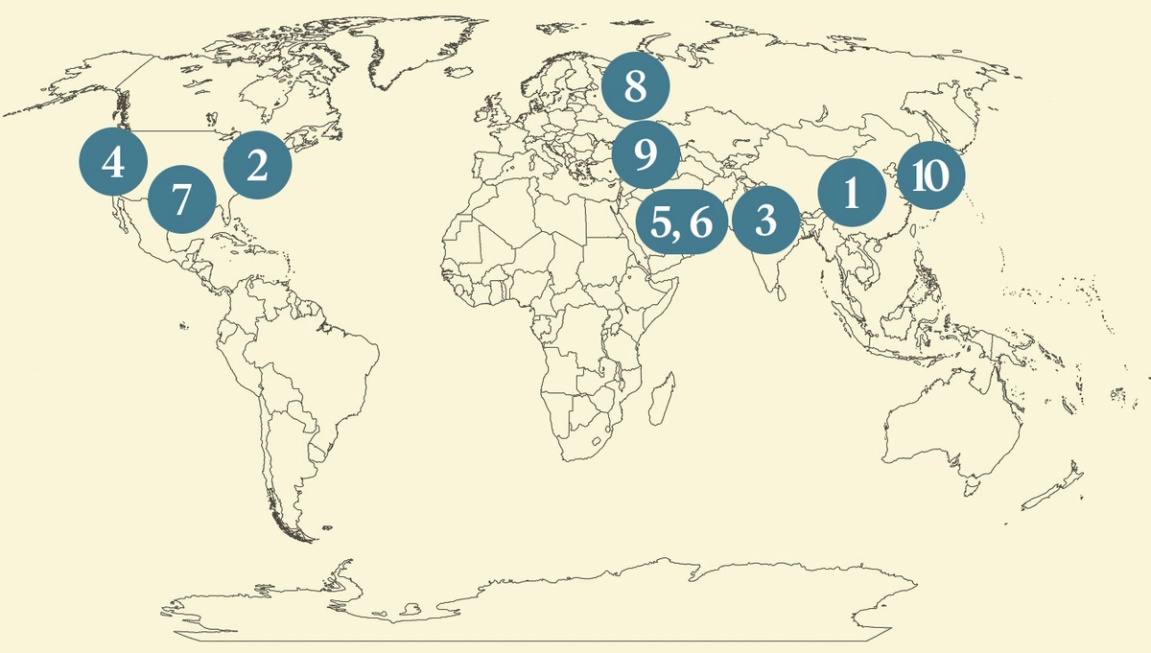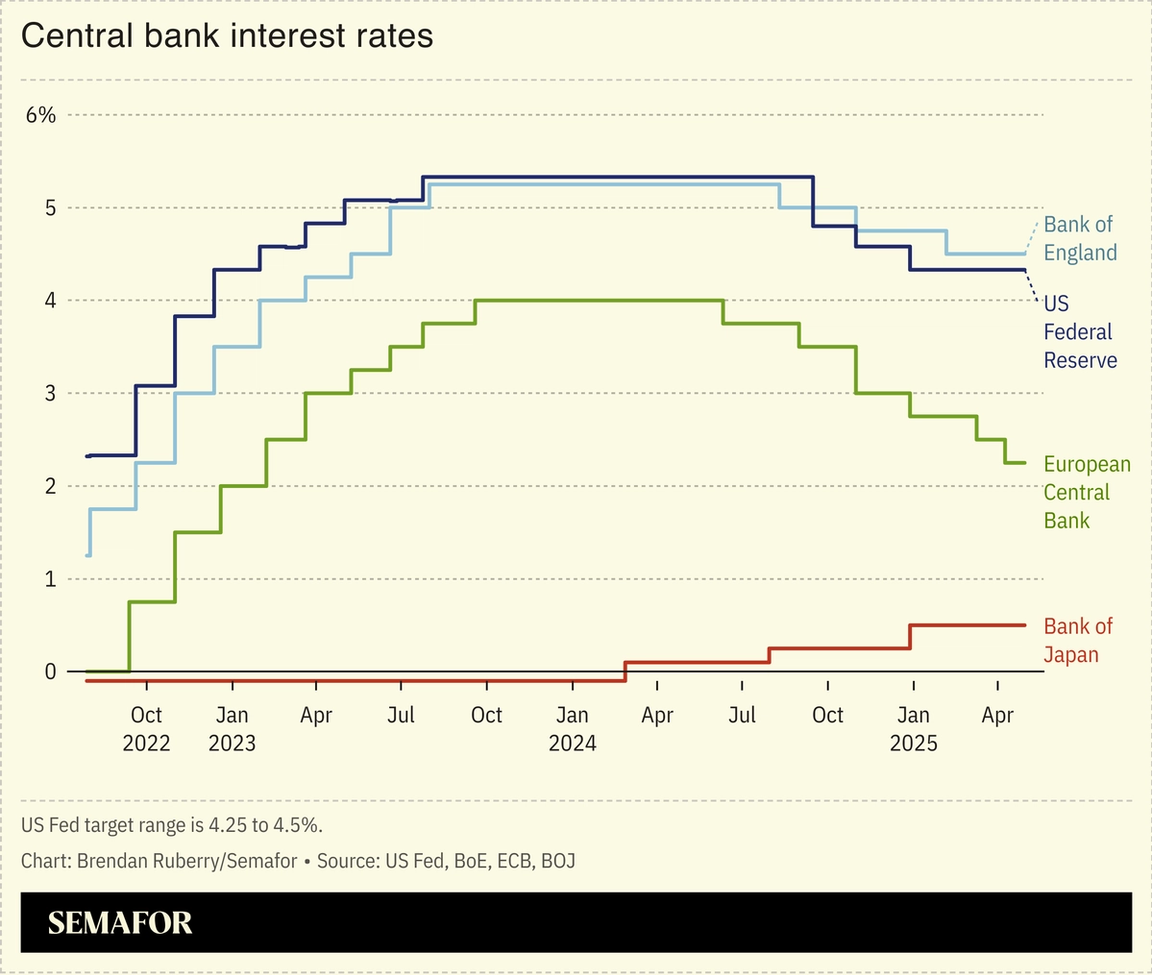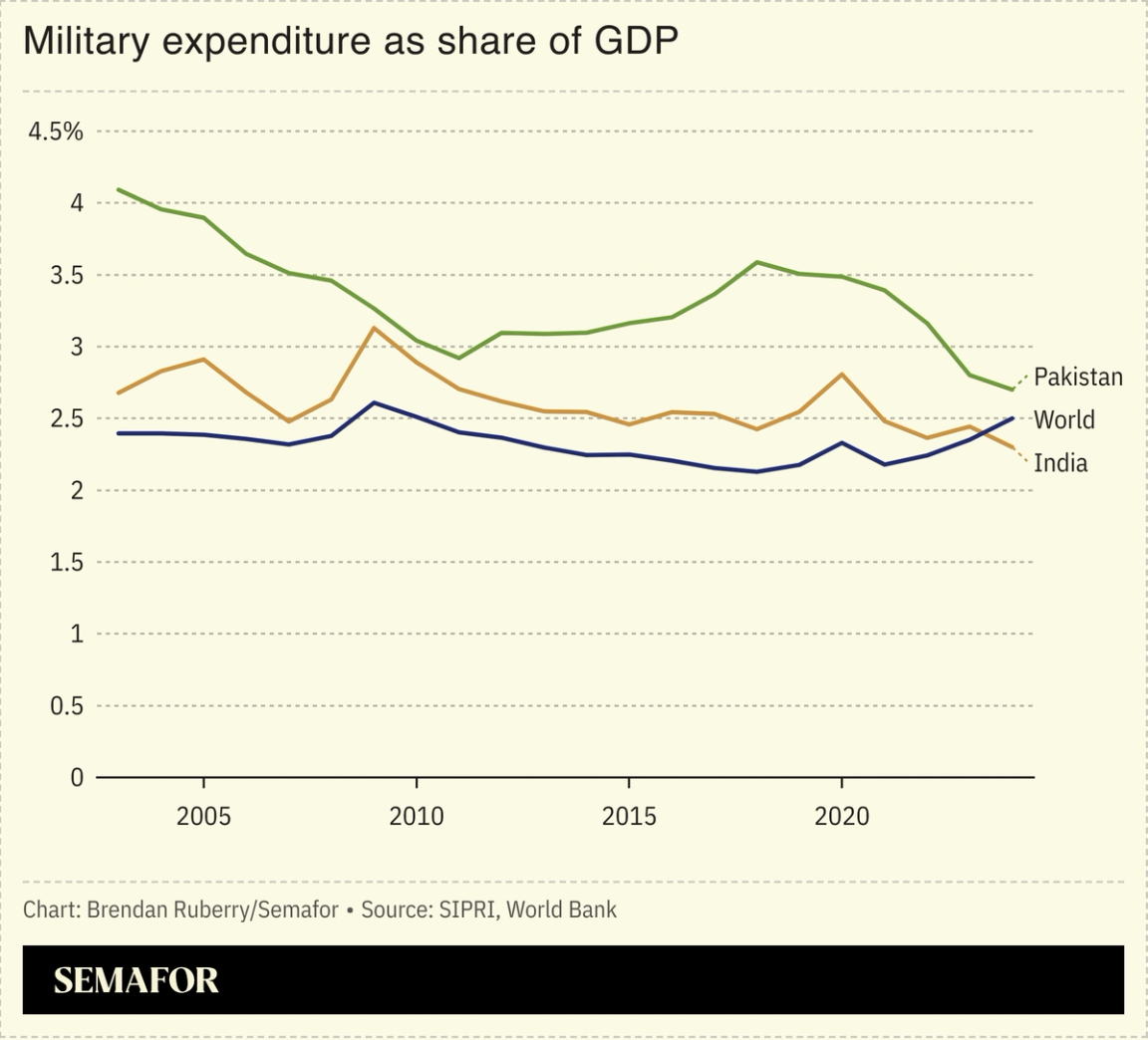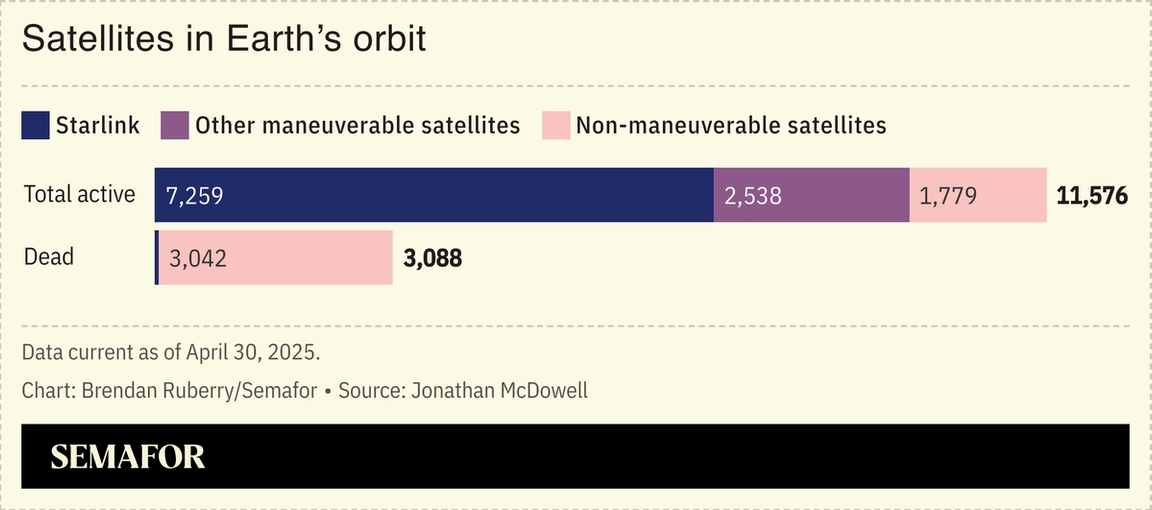| | China unveils economic stimulus measures, more students are learning about — and cheating with — AI,͏ ͏ ͏ ͏ ͏ ͏ |
| |   YEREVAN YEREVAN |   ABU DHABI ABU DHABI |   JEJU CITY JEJU CITY |
 | Flagship |  |
| |
|
The World Today |  - China jolts economy
- US Fed keeps rates steady
- China-US interests in S. Asia
- AI threatens Google Search
- UAE pushes AI in classrooms
- Disney park in Abu Dhabi
- Elon Musk’s real power
- New power dynamic in Russia
- Armenia’s tech hub hopes
- Korea’s extreme divers
 A new exhibition spotlights a Japanese woodblock print master. |
|
China unveils stimulus ahead of US talks |
 Alexander Vilf/Host agency Ria Novosti/Handout via Reuters Alexander Vilf/Host agency Ria Novosti/Handout via ReutersChina announced a slate of stimulus measures Wednesday aimed at shoring up its economy ahead of trade talks with the US. The move to cut interest rates and lower banks’ cash reserve requirements marked the most significant dose of monetary easing since US President Donald Trump’s “Liberation Day” tariffs, and is designed to strengthen Beijing’s hand during negotiations with the US, Bloomberg reported. The planned talks in Switzerland this weekend reflect a “mutual recognition of the need to de-escalate trade tensions” between the superpowers as the economic realities of a trade war set in, one China watcher wrote: Beijing will likely use the meeting “as a fact-finding mission” to get clarity on the intentions of Trump’s tariffs. |
|
Fed reinforces wait-and-see stance |
 The US Federal Reserve held interest rates steady Wednesday, making clear it was in no rush to take action amid the heightened uncertainty fueled by President Donald Trump’s tariff regime. The widely expected decision marked the third time this year that the central bank has left borrowing rates unchanged: Fed Chair Jerome Powell said the words “wait and see” a dozen times during his press conference. Officials noted a growing risk of higher inflation and rising unemployment, but the impact of Trump’s trade war has not yet shown up in concrete economic data, forcing experts and policymakers to parse through other evidence to make forecasts. “We have to rely on anecdotes, on indicators that are nonconventional,” a Barclays economist said. |
|
US-China interests in India, Pakistan |
 India and Pakistan’s escalating conflict is rooted in historic animosity, but their latest faceoff is being shaped by a shifting world order, analysts said. Islamabad vowed retaliation Wednesday after India launched a missile strike in response to a deadly attack in Kashmir last month. While the two nuclear-armed neighbors have de-escalated in past skirmishes, their latest confrontation must be “viewed in a changed geopolitical context,” Bloomberg’s Menaka Doshi wrote. “One in which the world’s two largest economies are engaged in a new cold war”: India has purchased more military equipment from the US, while China has sold more arms to Pakistan and invested billions through its Belt and Road Initiative. |
|
AI threatens Google Search |
 Kylie Cooper/Reuters Kylie Cooper/ReutersApple is considering adding artificial intelligence-powered search to its Safari browser, a top executive said Wednesday, potentially threatening Google’s coveted status as Apple’s default search engine. Shares of both Apple and Alphabet dropped after the executive’s testimony during an antitrust case, where he revealed that searches on Safari had declined because more users are likely turning to AI chatbots. That shift could erode Google Search’s dominance: Its share of the market dropped below 90% in the final quarter of 2024 for the first time in nearly a decade. While Google has released some new AI features for its search engine, the tech giant is struggling to articulate how AI will define the future of Search, The Information wrote. |
|
Mandating AI learning in schools |
 UAE Ministry of Education UAE Ministry of EducationGovernments around the world are pushing for artificial intelligence training in early education, amid growing concerns that students are relying too heavily on chatbots. The United Arab Emirates is mandating AI learning in schools starting this year; students’ use of the technology “is a fact,” the education minister told Semafor. Schools in Beijing have received a similar mandate, and US President Donald Trump recently signed an executive order calling for AI to be integrated into education. But at US colleges, students are “relying on AI to ease their way through every facet of their education,” a New York Magazine piece detailed. One tech ethicist fretted over “an entire generation of learning perhaps significantly undermined.” |
|
Disney plans Middle East theme park |
 Walt Disney Imagineering/Handout via Reuters Walt Disney Imagineering/Handout via ReutersDisney is planning a theme park in the Middle East as it bucked a wider trend toward economic retrenchment. Disneyland Abu Dhabi will be the fifth overseas Disney resort, after Japan, France, Hong Kong, and mainland China: The company turned down overtures from, among other places, Saudi Arabia. It’s a sign of the UAE’s growing tourism heft, but also of Disney’s confidence. Profits at its theme parks and cruises are up, and its streaming service is outperforming expectations. It may be good news for the US: “Disney has long been seen as a bellwether for consumer confidence,” The New York Times reported. When visits to the Magic Kingdom are down, “it’s usually a sign that Americans are growing pessimistic.” |
|
Musk power grows with space dominance |
 The dominance of Elon Musk’s space enterprise could give the billionaire “more power over the human exchange of information than any previous person has ever enjoyed,” The Atlantic’s Ross Andersen argued. Musk’s SpaceX has more than 7,000 satellites surrounding Earth that power his Starlink internet service. Political leaders have realized that “Starlink’s dominance will be hard to dislodge,” Andersen wrote: More individuals, governments, and militaries are using Starlink, giving Musk immense control over global communication. Some nations are reportedly embracing Starlink to demonstrate goodwill in trade talks with the US. Musk is also amassing power, the historian Adam Tooze wrote, by demonstrating “an uncanny ability to do something that the left dreams about”: Turning his businesses “into a cause.” |
|
Russian elite prep for post-Putin era |
 Sputnik/Gavriil Grigorov/Pool via Reuters Sputnik/Gavriil Grigorov/Pool via ReutersRussia’s political elites are finding new ways to expand their influence. For more than two decades, President Vladimir Putin has overseen a “power vertical,” in which he rewarded loyal officials who stayed within the bounds of their assigned authority, Meduza journalist Andrey Pertsev wrote. But in recent years, Kremlin deputies have widened their power by striking “horizontal” connections with each other and tactically taking over new portfolios unclaimed by others, like education and the Arctic. “The elites are learning to talk to one another without Putin,” Pertsev wrote for Carnegie Politika. The new dialogue is “bringing forward the dawn of post-Putin Russia.” |
|
Armenia aspires to be tech hub |
 Serouj Ourishian/Wikimedia Commons. CC BY-SA 3.0 Serouj Ourishian/Wikimedia Commons. CC BY-SA 3.0Armenia is trying to become the tech hub of the Caucasus. The landlocked West Asian country of 2.7 million people lacks natural resources or trade routes, but under Soviet rule it was a hub for math and computer science. It also has a large diaspora: 75% of Armenian-descended people live abroad, many in the US. Since 2014 Armenia has tried to take advantage of this heritage by launching a school program called “Armath,” teaching children robotics and coding: There are now 650 Armath labs in the country, and the organization behind them told the BBC that Armenia has 4,000 tech firms. One floated in New York in December and is now worth more than $10 billion. |
|
Korean extreme divers genes studied |
 Idobi/Wikimedia Commons. CC BY-SA 3.0 Idobi/Wikimedia Commons. CC BY-SA 3.0A cold-water diving tradition on South Korea’s Jeju Island may have shaped the genetics of its population. The Haenyeo — “women of the sea” — have dived for seafood for centuries, without breathing apparatus, all year round. Researchers found that people from Jeju, whether Haenyeo or not, are more likely to have gene variants associated with reduced blood pressure, improved blood oxygen-carrying capacity, and greater pain resistance, Nature reported. The Haenyeo gather seaweed and abalone in 50°F (10°C) water, diving to 60-foot depths, sometimes when pregnant or having recently given birth, although the practice is dying out, The Washington Post noted: Most are now over 60. Researchers hope the discovery could aid the development of medication for stroke and other cardiovascular problems. |
|
|